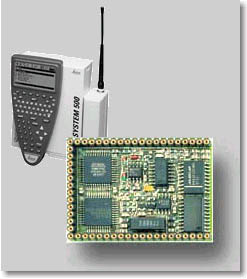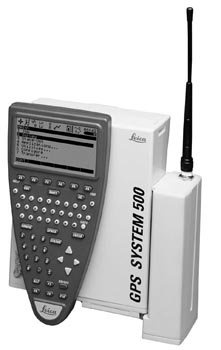DAB-DGPS Technology
Differential GPS requires realtime data transfer
from the fixed network of reference stations to the mobile GPS rover.
The data rate influences the attainable accuracy. A 4 kbit/s service
permits a sub-meter positioning accuracy within a mid-sized region
(~200x200km). The same bitrate used within a smaller zone (~40km of
diameter) permits positioning down to the centimeters range (RTK services).
|
Every industrial GPS receiver and part of the consumer devices support differential GPS operation. Wireless
carriers for differential GPS data are mainly the Radio Data System
(RDS) and the longwave "Beacon" system for lower accuracy
requirements. GSM point-to-point
connections are being used for high-precision positioning services
(RTK).
|
|


